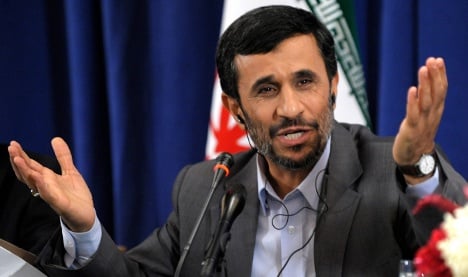The calls by the Financial Action Task Force (FATF), an inter-governmental body to counter illicit financial transactions that could be used to promote terrorism, could be adopted in February as part of a new round of sanctions against Iran over its nuclear programme, the paper reported.
The Association of German Banks (BdB), grouping private financial institutions, warned against the potential consequences of the FATF proposals put forward in November.
“If the cost is too high, we run the risk ultimately of seeing banks withdraw from doing business with certain countries or in certain sectors,” Bernd Brabänder of the BdB told Handelsblatt.
German industry has also raised objections to FATF proposals requiring banks to demand that companies that do business with Iran assure that their activities are “above reproach” before offering them financing.
But Oliver Wieck of the Federation of German Industry said that Germany already had effective checks on exports and argued that FATF regulations would undermine them.
According to federal statistics, German exports to Iran reached €291.4 million in September, with imports totalling €97 million.
The FATF task force secretariat is based at the Paris headquarters of the organisation for Economic Cooperation and Development.
Many in the West suspect Iran seeks to build a nuclear bomb, an allegation Tehran denies.
European Union leaders and the United States this month backed new sanctions against Iran, warning that Tehran’s refusal to negotiate over its nuclear programme must be met with a tough response.
Iran is already working under three sets of UN sanctions for refusing to stop uranium enrichment, a process to make both nuclear fuel and the fissile material needed for an atomic bomb.



 Please whitelist us to continue reading.
Please whitelist us to continue reading.
Member comments